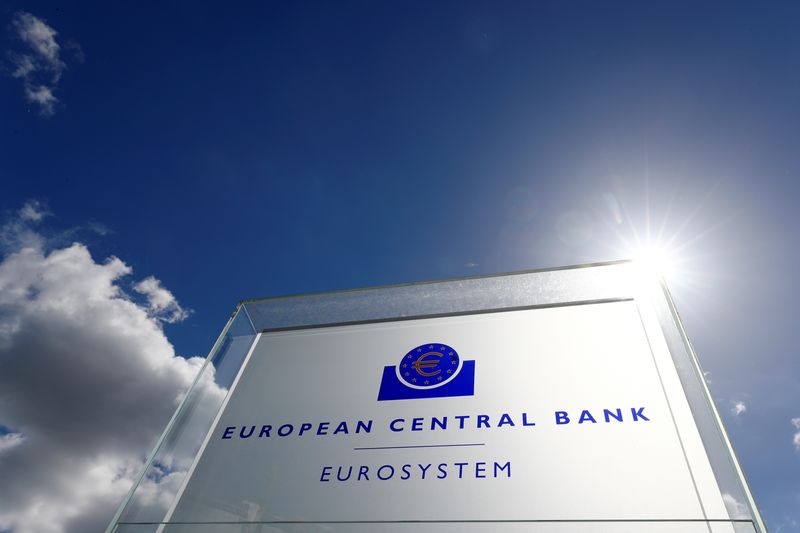FRANKFURT (Reuters) -The European Central Bank made a loss last year as its own interest rate increases forced it to write down the value of some bonds and fork out billions of euros on balances created during a decade of money-printing, its annual accounts showed.
While the 1.6 billion euro ($1.7 billion) loss was entirely covered by provisions, it raises questions about whether the ECB might one day run out of such buffers and who will foot the bill of its past largesse now that inflation is back and rates high.
Most of the loss revealed on Thursday came from writedowns in the ECB's relatively small own-funds and U.S. dollar portfolio, and from the interest it paid to central banks of euro zone member countries.
But the ECB has yet address the valuation of hundreds of billions of euros worth of bonds bought under its stimulus programme, a much bigger issue, especially for the national central banks which actually made most of the purchases.
Values have probably plunged since the ECB started raising borrowing costs and curbing asset purchases last year to fight a sudden surge in inflation.
Policymakers decided against writing down the value of those bonds on the ECB's balance sheet, where they are accounted for "at amortised cost subject to impairment" - a formula that gives them scope to ignore some market fluctuations.
The ECB valued bonds held on its balance sheet and bought under its stimulus programmes at 457.3 billion euros as of the end of December - equivalent to just under 10% of all the bonds held by the Eurosystem of central banks under such schemes.
The central bank for the euro zone, which now has 20 member countries, has still 6.6 billion euros worth of provisions, 8.9 billion euros of capital and 36.1 billion euros in a "revaluation account" designed to cover market losses.
If these buffers were to become depleted, it could ask its shareholders - the 20 national central banks of the euro zone - for a capital increase or, more likely, carry the losses forward into future years.
That would represent a challenge to the ECB's own longstanding doctrine that a central bank with low equity "may be regarded as not being financially independent and, as a result, its policy actions may be deemed not to be credible".

Some of the euro zone's largest national central banks will also present their annual reports in the coming weeks.
($1 = 0.9435 euros)